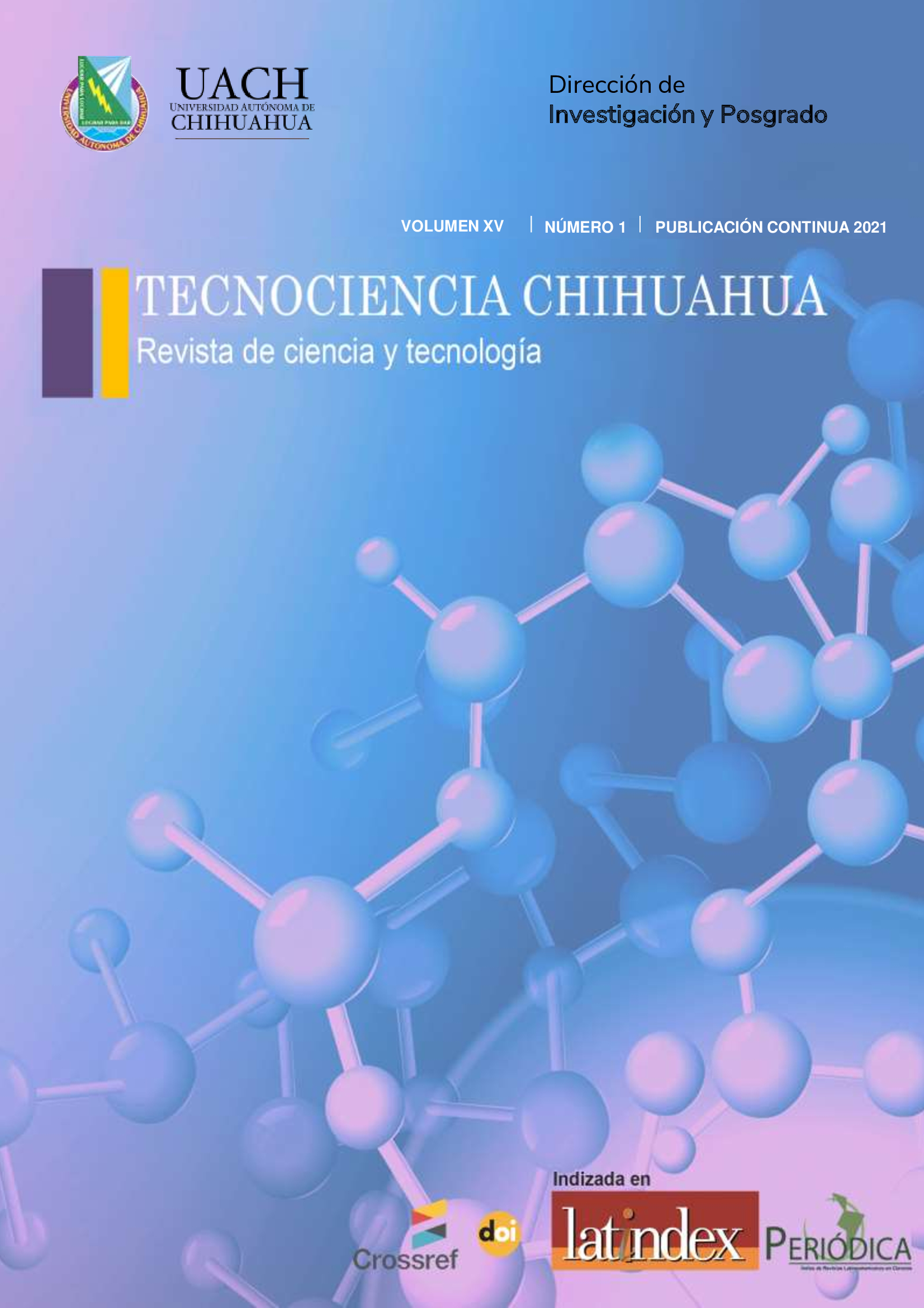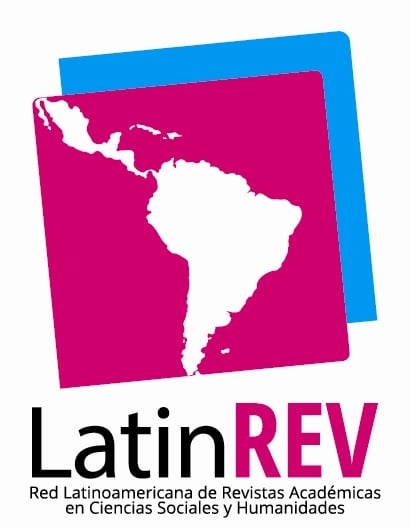Diagnosis of health and safety at work in a Fire Station located in Chihuahua, Mexico
Diagnóstico de salud y seguridad en el trabajo en una Estación de Bomberos ubicada en Chihuahua, México
DOI:
https://doi.org/10.54167/tch.v15i1.754Palabras clave:
Modelo Obrero Italiano, bomberos, factores de riesgo ocupacional, condiciones de trabajo, seguridad y salud en el trabajoResumen
Resumen
Esta investigación presenta un diagnóstico de seguridad y salud en el trabajo basado en el Modelo Obrero Italiano, para la identificación de riesgos y demandas fisiológicas en trabajadores de una estación de bomberos en Chihuahua, México. Se midieron los niveles de ruido, la pérdida auditiva y las partículas en suspensión. Se empleó el método ergonómico REBA para detectar el riesgo en el ascenso-descenso de la unidad móvil de rescate. Las demandas psicosociales se evaluaron a través del instrumento DAAS 21. El análisis estadístico se realizó utilizando el software SAS 9.0. El ruido excedió el Nivel Máximo Permitido (MLP) establecido por la norma mexicana. Se detectaron bomberos con hipoacusia leve a moderada. Se analizó el nivel de correlación entre umbral de audición (UA), antigüedad, edad e índice de masa corporal (IMC). Las partículas PM2.5 y PM10 fueron medidas y su concentración se encontró dentro del MLP. El método REBA categorizó el riesgo ergonómico como medio y muy alto. Los resultados del DASS 21 estuvieron en un rango normal para ansiedad-depresión-estrés. Los resultados brindan evidencia científica que demuestra la necesidad de equipos y atención médica para los bomberos.
Descargas
Citas
Álvarez, C., Romero, M., & Prieto, A. (2016). Epidemiological evaluation of noise exposure in local police and firefighters. Asociación Española de Especialistas en Medicina del Trabajo, 25(2), 50-112. https://bit.ly/3FPxsTg
Balderas-López, M., Zamora-Macorra, M., & Martínez-Alcántara, S. (2019). Musculoskeletic disorders in workers of tire manufacturing: analysis of the work process and. Acta Universitaria, 29: 1–16. https://doi.org/10.15174/au.2019.1913
Bárcenas-Castro, M., & Aguilera, A. (2012). Análisis del servicio de bomberos y riesgos de siniestros en la Zona Metropolitana de San Luis Potosí-Soledad de Graciano Sánchez. Revista de El Colegio de San Luis, 2(3), 88-105. http://dx.doi.org/10.21696/rcsl032012515
Barr, D., Gregson, W., & Reilly, T. (2010). The thermal ergonomics of firefighting reviewed. Applied Ergonomics, 41(1), 161-172. https://doi.org/10.1016/j.apergo.2009.07.001
Bufano, P. (2013). New research in firefighters underscores need for innovative hearing protection. Hear Journal, 66(9), 1-2.
Choi, B., Schnall, P., Dobson, N., Israel, L., Landsbergis, P., Galassetti, P., Kojaku, S., & Baker, D. (2011). Exploring occupational and behavioural risk factors for obesity in firefighters: A theoretical framework and study design. Safety and Health at Work, 2(4), 301-312. https://dx.doi.org/10.5491%2FSHAW.2011.2.4.301
Cohen, H. W., Zeig-Owens, R., Joe, C., Hall, C. B., Webber, M. P., Weiden, M. D., Cleven, K. L., Jaber, N., Skerker, M., Yip, J., Schwartz, T., & Prezant, D. J. (2019). Long-term cardiovascular disease risk among firefighters after the World Trade Centre Disaster. JAMA network open, 2(9), e199775. https://doi.org/10.1001/jamanetworkopen.2019.9775
Croll, P. H. (2019). The association between obesity, diet quality and hearing loss in older adults. Aging, 11(1), 48-62. https://dx.doi.org/10.18632%2Faging.101717
Dhanda, N., Taheri, S. (2017). A narrative review of obesity and hearing loss. International Journal Obesy, 41, 1066–1073. https://doi.org/10.1038/ijo.2017.32
Diaz, C., Goycoolea, M., & Cardemil, F. (2016). Hipoacusia: Trascendencia, Incidencia y Prevalencia. Hearing loss: Transcendence, incidence and prevalence. Revista Médica Clínica Las Condes, 27(6), 731-739. https://doi.org/10.1016/j.rmclc.2016.11.003
Duran, F., Woodhams, J., & Bishopp, D. (2018). An interview study of the experiences of firefighters in regard to psychological contract and stressors. Employee Responsibilities and Rights Journal, 1-24. https://psycnet.apa.org/doi/10.1007/s10672-018-9314-z
Ehlers, J., McCammon, J., O'Brien, D., Earnest, S., Leroy, R., Woebkenberg, M., & Flesch, J. (2015). Prevención de envenenamiento con monóxido de carbono producido por herramientas y equipos con motores pequeños de gasolina. https://www.cdc.gov/spanish/NIOSH/docs/96-118_sp/
Elbay, R., Kurtulmuş, A., Arpacıoğlu, S., & Karadere, E. (2020). Depression, anxiety, stress levels of physicians and associated factors in Covid-19 pandemics. Psychiatry Research, 290(113130), 1-12. https://doi.org/10.1016/j.psychres.2020.113130
Engelsman, M., Toms, L.M., Banks, A., Wang, X., & Mueller, F. (2020). Biomonitoring in firefighters for volatile organic compounds, semivolatile organic compounds, persistent organic pollutants, and metals: A systematic review. Environmental Research, 188, 109562. https://doi.org/10.1016/j.envres.2020.109562
Fernández, L., Suárez, R., & Labarta, A. (2011). Hypoacusia and metabolic disorders. CCM, 15(4), 1-11. http://www.cocmed.sld.cu/no154/pdf/rev01.pdf
Gentzler M, Stader S. (2010). Posture stress on firefighters and emergency medical technicians (EMTs) associated with repetitive reaching, bending, lifting, and pulling tasks. Work, 37(3), 227-239. https://doi.org/10.3233/wor-2010-1075
Guidotti, T., & Clough, V. (1992). Occupational health concerns of firefighting. Annual Review of Public Health, 13, 151-171. https://bit.ly/3wfULTh
Hita-Gutiérrez, M., Gómez-Galán, M., Díaz-Pérez, M., & Callejón Ferrer, A. (2020). An Overview of REBA method applications in the world. International Journal of Environmental Research and Public Health, 17, 1-22. https://doi.org/10.3390/ijerph17082635
Hong, O., Chih, D., & Samo, D. (2013). Hearing loss and use of hearing protection among career firefighters in the United States. Journal of Occupational and Environmental Medicine, 55, 960-965. https://doi.org/10.1097/jom.0b013e318293aee0
Hu, H., Tomita, K., Kuwahara, K., Yamamoto, M., Uehara, A., Kochi, T., Eguchi, M., Okazaki, H., Hori, A., Sasaki, N., Ogasawara, T., Honda, T., Yamamoto, S., Nakagawa, T., Miyamoto, T., Imai, T., Nishihara, A., Nagahama, S., Murakami, T., & Shimizu, M. Japan Epidemiology Collaboration on Occupational Health Study Group (2020). Obesity and risk of hearing loss: A prospective cohort study. Clinical nutrition (Edinburgh, Scotland), 39(3), 870–875. https://doi.org/10.1016/j.clnu.2019.03.020
Jiang, L. C., Yan, Y. J., Jin, Z. S., Hu, M. L., Wang, L., Song, Y., Li, N. N., Su, J., Wu, D. X., & Xiao, T. (2020). The Depression Anxiety Stress Scale-21 in Chinese Hospital Workers: Reliability, latent structure, and measurement invariance across genders. Frontiers in Psychology, 11, 247. https://doi.org/10.3389/fpsyg.2020.00247
Kim, S.J., Kang, J., Kang, S.K., & Ham, S. (2019). Evaluation of the effect of an exhaust reduction system in fire stations. Sustainability, 11(22), 6358. https://doi.org/10.3390/su11226358
Kim, H., Kang, K., & Kim, T. (2018). Measurement of particulate matter (PM2.5) and health risk assessment of cooking-generated particles in the kitchen and living rooms of apartment houses. Sustainability, 10(843), 1-13. https://doi.org/10.3390/su10030843
Kodom-Wiredu, J. K. (2019). The Relationship between Firefighters' work demand and work-related musculoskeletal disorders: The moderating role of task characteristics. Safety and Health at Work, 10(1), 61-66. https://doi.org/10.1016/j.shaw.2018.05.004
Marín, M., & Pico, M. (2004). Italian Worker Model. In M. Marín, M. Pico, & L. Escobar (Ed.), Fundamentals of Occupational Health (pages: 28-31). Universidad de Caldas, Ciencias para la salud.
Meléndez-López, J.M.A., González-Muñoz, E.L., & González-Baltazar, R. (2018). Fatiga laboral, mediante la aplicación del SOFI-SM en bomberos mexicanos. Revista Colombiana de Salud Ocupacional, 8(1), e-5104. https://doi.org/10.18041/2322-634X/rc_salud_ocupa.1.2018.5104
Diario Oficial de la Federación. (2014). Chemical agents polluting the work environment-Recognition, evaluation and control. (NOM-010-STPS-2014). https://bit.ly/3PoyHx8
Diario Oficial de la Federación. (2001). Conditions of safety and hygiene in work centres where noise is generated. (NOM-011-STPS-2001). https://bit.ly/3NhAHFD
Diario Oficial de la Federación. (2014). (2014). Permissible limit values for the concentration of suspended PM10 and PM2.5 particles in the ambient air and criteria for their evaluation. (NOM-025-SSA1-2014). https://bit.ly/3NfV4TI
Noriega M. (1995). La realidad latinoamericana frente a los paradigmas de investigación en salud laboral. Salud de los Trabajadores. 3(1):13-20. https://dialnet.unirioja.es/servlet/articulo?codigo=6480868
Prell, R., Opatz, O., Merati, G., & Gesche, B. (2020). Heart rate variability, risk-taking behaviour and resilience in firefighters during a simulated extinguish-fire Task. Frontiers in Psychology, 11(482), 1-12. https://doi.org/10.3389/fphys.2020.00482
SAS. (2006). SAS Institute Inc. 2006. Statistical Analysis System 9.1.3 User´s guide. CARY, NC, USA. https://bit.ly/3FYkjaQ
Uribe, P., Gutiérrez-Amador, J., Chantal, J., & Amézquita-Pino, J. (2020). Crítica a las propiedades psicométricas de una escala de medición de factores de riesgo psicosocial propuesta en la NOM 035 de la STPS en México. Contaduría y administración, 65(1), e147. https://doi.org/10.22201/fca.24488410e.2019.1569
Vilchis-Rea, M., & López-Hernández, E. (2017). Occupational risk factors in Mexican firefighters of four stations: participatory action-research. RCSO, 6(4), 124-131. https://bit.ly/3lhbHCp
Voguel, L. (2016). The current status of the Italian Worker Model for the fight for health in the workplace. Laboreal, 12(2), 10-17. http://dx.doi.org/10.15667/laborealxii0216lv
Wayne, D. (2005). Bioestadística: base para el análisis de las ciencias de la salud. 4a ed., México: Limusa-Wiley. https://bit.ly/38rpBzl
Yang, L., Kang, B., Wang, T., & Zhao, T. (2014). An Ergonomic study of firefighters’ postural comfort evaluation based on EMG Method. Proceedings of the Human Factors and Ergonomics Society Annual Meeting, 58(1), 2310-2312. http://doi.org/10.1177/1541931214581481
Zárate-Amador, A., Aguilar-Madrid, G., Colunga-Rodríguez, C., Haro-García, L.C.., & Juárez-Pérez, C. (2013). Perfil salud-enfermedad en los trabajadores de una empresa en el valle de México. Medicina y Seguridad del Trabajo, 59(233), 405-416. https://dx.doi.org/10.4321/S0465-546X2013000400005
Publicado
Cómo citar
-
Resumen884
-
PDF685
-
HTML7

















